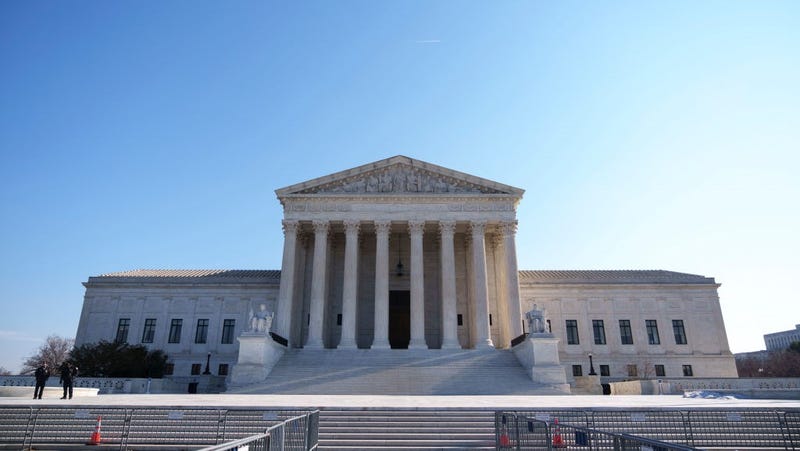
The Supreme Court announced on Monday that it will decide whether the use of race in the admissions process at Harvard University and the University of North Carolina violates civil rights law and the Constitution.
The legal debate over affirmative action has been going on for years. It will be the first time since 2016 that a high court has decided on whether colleges consider race when accepting students.
Harvard has acknowledged that they consider race as one of several factors in its admissions process, which is consistent with current legal standard.
The Supreme Court has not said when it will consider affirmative action suits, but it's likely they won't take it up until the next term, which begins in October.
"The Supreme Court decision to review the unanimous decisions of the lower federal courts puts at risk 40 years of legal precedent granting colleges and universities the freedom and flexibility to create diverse campus communities," Harvard University President Lawrence Bacow said. "Harvard will continue to defend vigorously its admissions practices."
Harvard, among other universities, has relied on previous Supreme Court decisions to allow them to consider race in its admissions process. The high court ruled that schools are interested in promoting a diverse student body.
The University of North Carolina's admissions process has been "consistent with long-standing Supreme Court precedent and allows for an evaluation of each student in a deliberate and thoughtful way," according to Beth Keith, a spokeswoman for UNC-Chapel Hill.
The anti-affirmative action group Students for Fair Admissions, led by conservative legal strategist Edward Blum, has filed the lawsuits, and has said that Harvard discriminates against Asian American students during the admissions process so that they can increase Black and Hispanic enrollment. They also filed a companion case against UNC in November.
“It is our hope that the justices will end the use of race as an admissions factor at Harvard, UNC and all colleges and universities," Blum said. "The cornerstone of our nation's civil rights laws is the principle that an individual’s race should not be used to help or harm them in their life’s endeavors."
The lawyers for the Students for Fair Admissions have said that Asian American applicants at Harvard received lower "personal ratings" than other racial or ethnic minorities. The ratings are meant to help create a diverse student body by focusing on characteristics other than academics, extracurriculars, sports, and legacies.
In 2020, the U.S. Court of Appeals for the 1st Circuit in Boston ruled that Harvard was properly using race as one of several factors in the admissions process. A federal district court ruled in favor of UNC in the separate case in October.
The Student for Fair Admissions filed an appeal with both the U.S. Court of Appeals for the 4th Circuit in Richmond, Virginia, and the Supreme Court.


